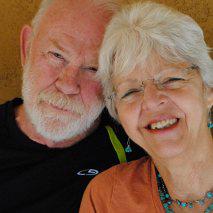Evan Doukas – June 18, 2017

In Romans 7, Paul gives us a deep scenario of a heart filled with inner turmoil and the struggle with sin:
…”but I am unspiritual, sold as a slave to sin. I do not understand what I do. For what I want to do, I do not do. But what I hate, I do. And if I do what I do not desire, I admit that the Law is good. In that case, it is no longer I who do it, but it is sin living in me that does it.
I know that nothing good lives in me, that is, in my flesh; for I have the desire to do what is good, but I cannot carry it out. For I do not do the good I want to do. Instead, I keep on doing the evil I do not want to do. And if I do what I do not want, it is no longer I who do it, but it is sin living in me that does it.”
Many of us, including myself, have strongly related to this dilemma. In fact for a long time, my Christian life was measured by the battle with sin and the constant inner struggle that it brings. I was extremely thankful for the forgiveness of sins through Jesus Christ crucified and the fact that I was heaven-bound, but assumed that until I got there, life was just meant to be “the everyday sin struggle”. In my constant failures, I quickly identified with sentiments such as “the Spirit is willing but the flesh is weak” and “man, I can really relate to Paul in Romans 7”. I now realize that, like many, I did not truly understand the depths of the gospel.
I have very good news for you:
The Romans 7 struggle is not meant for you.
The inner turmoil, constant struggle and even defeat in regards to sin, is not the will of God for His children. Contrarily, He has set us free of these very things.
If this is the first time hearing something like this, I encourage you to now read Romans 7 (better yet, Romans 6 through 8) with this perspective in mind.
In the beginning of the 7th chapter, Paul explicitly communicates the fact that he is addressing those who know the law – His fellow Jewish brothers and sisters. He then takes a few minutes to elaborate on the inner struggle of a zealous, well-meaning Jew who is trying to live a life of serving the Lord with purity and worship under the law and therefore by the flesh (or human nature). Paul, being well aware of this struggle from his past, is expressing this dilemma in a first-person narrative. A conclusion of the narrative is a powerful question and answer: “What a wretched man I am! Who will rescue me from this body of death? Thanks be to God, through Jesus Christ our Lord!”
The key here is that He has rescued us out of this! He then leads into Romans 8, which spells out what it is like to be free of condemnation, as well as the awesome principles of sonship.
To be clear, this is not to say that there can never be a struggle in the flesh and that Paul never again had struggles of this type. In fact, in Romans 8, it also warns not to go back to the old way and live according to the flesh. The very point is that the constant struggle – life in the flesh – is the old way, that we have been set free from this very thing, and that we now lay hold of (and live from) the new nature that is ours through Christ! We are literally transformed into a new state of consciousness. Observe the difference between the old Paul and the new Paul as exemplified in Romans 7:17 and Galatians 2:20:
“…It is no longer I who do it, but it is sin living in me” (before)
“I have been crucified with Christ. It is no longer I who live, but Christ who lives in me.” (after)
This is one of the key aspects of the gospel; we have died to the old self and are raised in the new. Let us never fall prey to a self-seeking, watered-down gospel, which is just merely asking Jesus into our heart and incorporating Him into our life. Instead we make Jesus our whole life, giving Him all of us, and die so that we might truly live!
Once we understand that we have died with Christ and have been raised with Christ (Col. 3:1), and once we gain total conviction of our righteousness (right-standing) with the Father, our minds begin to be renewed and we begin to be transformed from the inside out. It actually becomes harder and harder to sin. And if we do fall, we repent and get right back up, knowing that this no longer for us — this is not what He created us for and certainly not what we are becoming in Christ! We speak the truth over ourselves in thankfulness and live from the righteousness He says we now are!
So how do we win the fight against sin in our life? By not fighting at all (at least the way we think we fight). Jesus has won the battle for you, once and for all, and He calls you a conqueror – a son or daughter of the Most High God (whether you’re feeling like it or not). Instead of a constant deep consciousness of sin, let your conscience be filled with these truths. Instead of being sin-conscious, be son-conscious. There is so much power in our identity when we understand our identity.
To capitalize on these truths, here is another profound and exciting fact:
The blood of Jesus does not cover sins. It completely removes them.
“Behold, the Lamb of God, who takes away the sin of the world!” John 1:29
In the book of Hebrews, especially in chapters 9 and 10, it teaches us that the blood of Jesus is not like the old covenant blood of animals, which in fact served as a constant reminder of our sins, but rather, the blood of Jesus takes away our sins and renders our conscience clean, with no more feelings of guilt and shame. We can now truly serve and live for God, whereas before we couldn’t with a dirty conscience.
Last but not least, the most important thing (no matter how much you think you have failed or not) is our relationship with God. Love trumps all other things. True transformation happens through a love-relationship with the Father.
Christ did not die for your sins. He died for you, so that He can defeat sin, getting it out of the way to get you back – revealing your value, and restoring you to your original destiny and relationship with Him. This is the gospel.
Despite what the other voices say, including sometimes even our own, let us be everything He says we are. Let us give Him the reward of His suffering – that is, us.
Recent Sermons

Pettit 50th Anniversary and Vow Renewal
August 23, 2020

What is Man – Part 2
August 16, 2020

What is Man – Part 1
August 09, 2020


